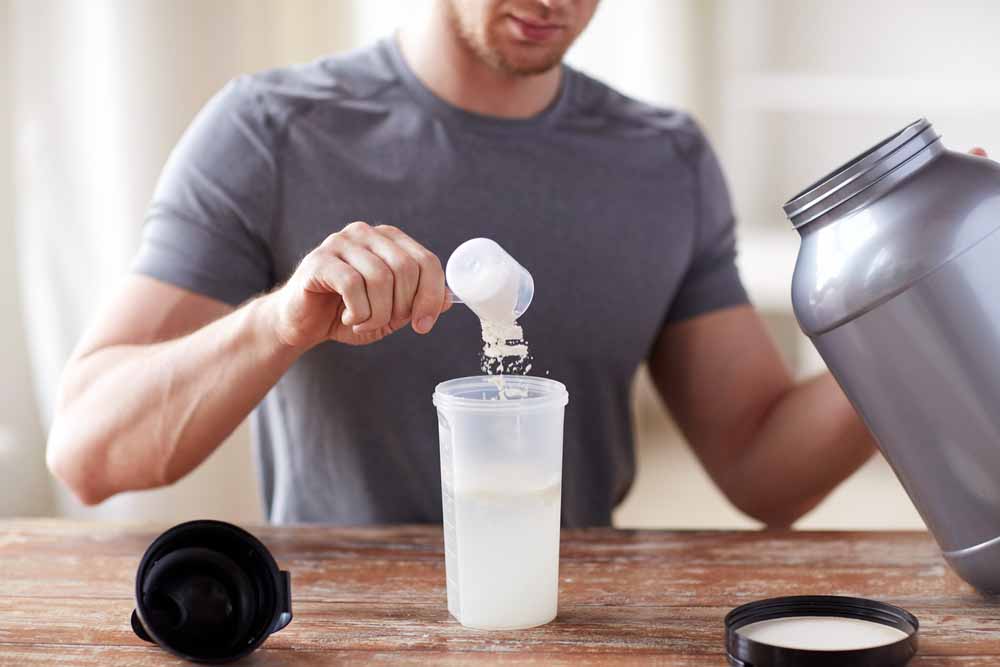How much protein does a climber need?
For many people discussions of protein often bring to mind buff gym jockeys, oversized barrels of whey powder and strutting around looking like Mr Olympia.
But whether you’re training hard or even just climbing on a regular basis what is the correct amount?
There’s one myth that needs to be banged on the head.
This is that eating the right amount of protein, either through whole foods or taking protein supplements will make you bigger. Getting bodybuilder-big requires a huge increase protein, calories, plus a specific, intense body-building regime.
So before we start, don’t worry, knocking down a few protein heavy snacks or extra shakes won’t make you look like Heman.
The Importance of Protein
Nutrition is part of the climber’s golden trio:
- Training
- Nutrition
- Rest
You can’t get nutrition right without the correct amount of protein.
Protein is needed for development, growth and replenishing one of the indispensable building blocks of your body: amino acids.
Consuming it activates protein synthesis and triggers the rebuilding of muscle tissue that has been damaged during training.
Some of the most important roles of protein are:
- Muscle repair and maintenance.
- Creating enzymes and hormones.
- Transporting and storing important molecules.
- Collagen production.
- More generally injury recovery.
When Do We Get Stronger

You may have heard that saying that gains are made after your session.
This is why post-climbing meals are considered so important.
When you’re training you’re actually getting weaker. Muscle is damaged and broken down through physical exertion and it’s when this is built back up during recovery that progress is made.
You need both of these components to have an increase in performance: training and protein. Protein is indispensable in aiding recovery.
How Much Protein Do Climbers Actually Need?

Climbers who training regularly should definitely be considering how much they’re getting.
Recommendations are now very clear on the quantity of protein needed by someone who regularly performs a demanding physical activity.
A 2022 meta-analysis study, taking data from 69 research articles concluded:
- The appropriate protein intake for maintaining and augmenting muscle strength from resistance training is 1.5 grams per kilogram of bodyweight.
Before that, in 2016, the Academy of Nutrition and Dietetics, Dietitians of Canada and the American College of Sports Medecine: Nutrition and Atheletic Performance recommended that for a person participating in regular physical activity:
- Consume 1.2g to 2g of protein per kilogram of body weight, whether endurance or strength athletes.
- The high or low end of this should be based on the intensity of the workouts and calorie intake.
- Athletes should consume 0.25g to 0.3g of protein per kilogram of body weight no more than two hours post-exercise.
1.5 grams of protein per kilogram of body weight therefore sits nicely within this range. This is regardless of sex.
As examples:
- If you weigh 60kg you should be eating 90grams of protein per day
- If you weigh 75kg you should be eating 112.5grams protein per day.
What Does 1.5g per kg Look Like?

If you’re not used to counting your macro or micronutrients then knowing how to get the desired amount isn’t always obvious.
It’s not complicated but it’s a habit to take.
Let’s use the example of a 75kg person who requires 112.5grams of protein per day.
Current thoughts are that this should be divided into portions of 20-25g servings, as this is the point at which protein synthesis plateaus off.
This quantity of protein can seem like a large amount. If you currently eat 3 meals a day then you’ll generally be required to add in 2 protein rich snacks – it can feel like you never stop eating!
The total amount could therefore be divided as follows:
- Breakfast: 20-25g
- Morning snack: 20g
- Lunch: 20-25g
- Afternoon snack: 20g
- Dinner: 20-25g
This protein intake would put you in the 100-115 grams range. As is quite clear in this example, protein is required at each meal plus two snacks to hit this daily target.
Supplemental Protein for Climbers

Natural and whole foods should always be the priority, especially for the main meals of the day.
Protein rich snacks, such as nuts, tinned fish, cottage cheese and other bitesized goodies are also great for the morning and afternoon break.
However, there are days when you just don’t have time to prepare in advance or you may not want the extra calories or fats from the available snacks. This is when protein supplements come in.
If you’re training regularly they can be a great option to make sure your body is getting all the indispensable amino acids it needs and help with recovery.
The most common protein supplement and good place to start is whey protein. From then on, protein supplements become an animal of their own.








